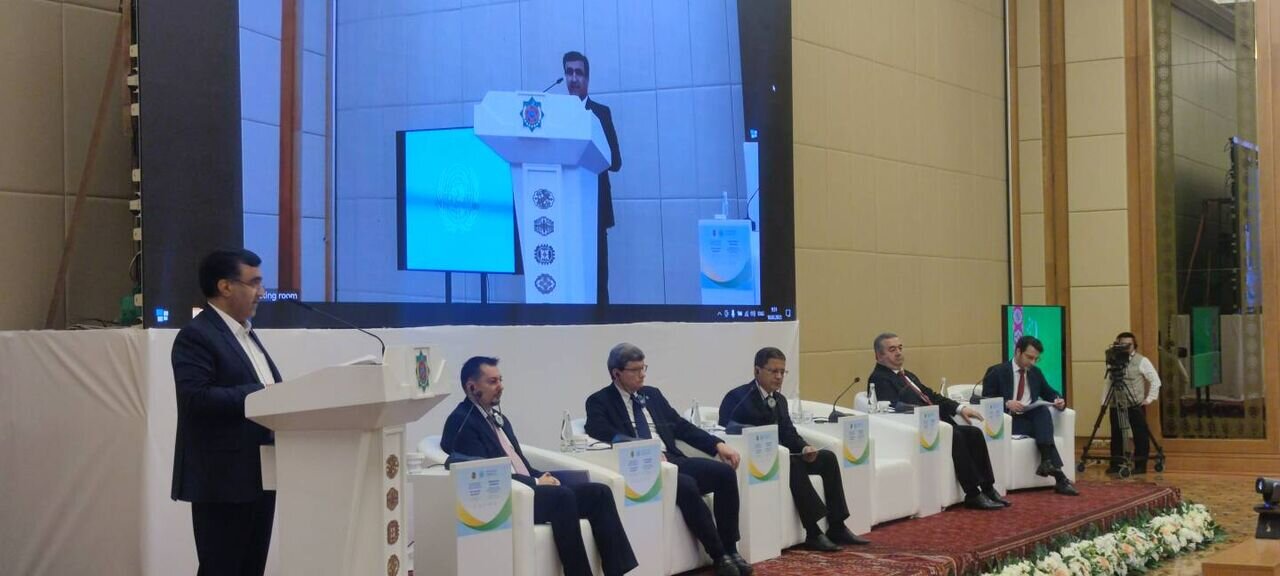Regional cooperation a key element for food security, Iran says

TEHRAN - Iran has called for boosting multilateral cooperation in the region to tackle environmental challenges and ensure food security.
“The impact of climate change has become so obvious and severe that we must react actively, effectively, efficiently, and quickly,” Ali Salajeqeh, the chief of the Department of Environment (DOE), said.
Environmental problems are not limited to political borders, he said, adding that supporting and strengthening regional and multilateral cooperation to overcome common challenges is of vital importance.
He made the remarks at the "Partnership for Food Security under Climate Change" international conference which was held in collaboration with the United Nations Food and Agriculture Organization (FAO) in Ashgabat on March 9-10.
“We are determined to take more effective measures to protect the environment and maintain the country's food security, and we know very well that to achieve this goal, we must cooperate with other countries, especially our neighboring countries.
The world needs to make serious decisions at the right time to prevent the occurrence of disasters related to malnutrition and poverty that will affect the achievement of sustainable development goals and slow down the process of achieving them.”
“In order to reach a common and coordinated approach, we suggest that a cooperation mechanism for food security be formed in the context of climate change.”
This mechanism can be established with the cooperation of governmental, non-governmental, scientific, and international organizations with the support of the private sector, Salajeqeh added.
Elsewhere in his remarks, the DOE chief said climate change with direct impact on the output of crops and an increase in temperature and change in precipitation patterns, intensification of extreme events such as floods, drought, dust, water resources, pests, and diseases, and invasive species has indirectly impacted food security in all its four dimensions including availability, affordability, utilization, and stability.
It has put all vulnerable groups in northern and southern countries at risk on different scales, both in terms of economy and health, he noted.
“This challenge has even hindered the achievement of sustainable development goals, especially poverty alleviation, elimination of hunger and malnutrition, gender equality, and reduction of inequalities.”
“Iran has an arid and semi-arid climate, and due to the estimated increase in its temperature above the global average, Iran is facing more and more environmental problems caused by climate change.
Despite the imposition of sanctions, the government of the Islamic Republic of Iran has put on the agenda improving the supply chain, increasing the fertility of agricultural lands, optimizing management of pastures, and developing greenhouses.”
The national food security bill is in the process of approval in the parliament in order to strengthen food security and remove obstacles to agricultural production, support farmers and crop producers, and define a comprehensive system of supply and demand, he highlighted.
Referring to the implementation of a national plan to plant one billion saplings in cooperation with FAO and centered on the natural resources and watershed management organization to deal with desertification over the course of four years, Salajeqeh said: “The plan is in line with the implementation of the country's clean air law and the country's voluntary commitments to the United Nations Convention to Combat Desertification (UNCCD) to zero out land destruction.”
“Restoring and expanding forests and urban green spaces by 1.44 million hectares, controlling 170 million tons of dust in the source area, absorbing 150 million tons of greenhouse gases, reducing soil erosion by 25 million tons per year, and producing about 2 billion cubic meters of fresh water are among the goals of the plan.”
All of these will contribute to biodiversity conservation and climate change prevention goals, he stressed.
Considering the need to improve the technical knowledge of experts and the general knowledge of all people, especially local communities, as well as the need to prioritize action in the field of adaptation to climate change, keeping in mind the principle of common but distinct responsibilities, as well as the commitment of developed countries to finance and transfer technology to developing countries, we emphasize the key role of international organizations in expanding communication channels, managing and transferring knowledge, as well as introducing successful experiences, Salajeqeh concluded.
MG
Leave a Comment